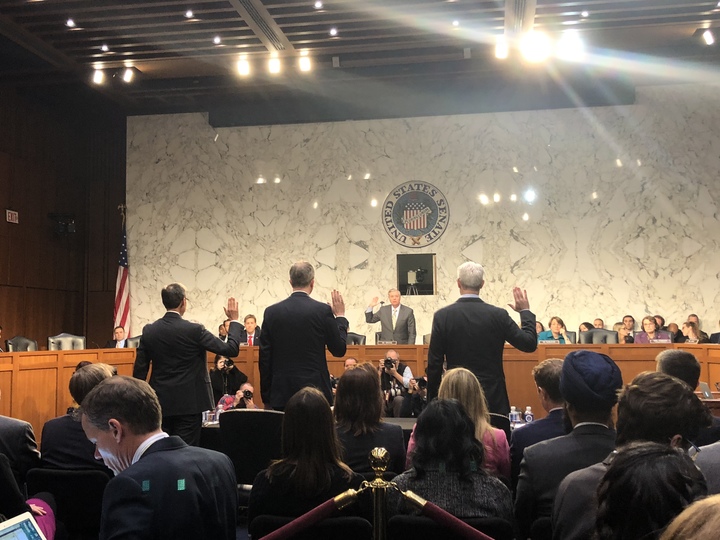WASHINGTON – Top officials from Facebook, Twitter and Google pledged Tuesday to work closely with government officials to prevent foreign interference in U.S. elections as part of a Senate hearing on Russian interference in the 2016 presidential election.
“The content run by these fake accounts, masquerading as real identities, is vile,” said Facebook General Counsel Colin Stretch in his testimony before the Senate Judiciary Subcommittee on Crime and Terrorism.
Stretch said foreign interference on Facebook started in 2015 and continued throughout the election and mostly did not involve supporting or criticizing individual candidates.
“The activity appeared to address a wide range of hot button topics toward inflaming discourse,” Stretch said. “Ninety percent of the ads appeared to be issue based, a smaller portion was directed toward individual candidates.”
On Monday morning, the three companies revealed that the numbers of Russian-linked accounts on their sites were higher than they initially announced. Facebook reported ads funded by Russians reached 126 million Americans.
Twitter’s acting general counsel, Sean Edgett, said 5 percent of Twitter accounts were not legitimate users. Another senior official at Google, Richard Salgado, said the videos associated with Russian actors had very low view counts, with only 3 percent reaching over 5,000 views.
Lawmakers demanded to know what improvements the social media giants had made and what actions they plan for the future.
Sen. Sheldon Whitehouse, D-R.I., said the three companies should provide benchmarks that show the committee how they have improved in dealing with foreign interference, their list of goals to stop the phony accounts and an idea of what success looks like to them.
Stretch said that Facebook is developing tighter ad content regulations, more ad transparency, requiring more information from political ad buyers and developing artificial intelligence to locate faulty content and actors.
Whitehouse requested written answers to his questions be sent after the hearing.
Democratic Sen. Al Franken of Minnesota was frustrated that the tech giants allowed Russian interference to happen in the first place.
“How can Facebook, which prides itself on being able to analyze millions of data points, somehow not make the connection that electoral ads were being paid for with rubles [the Russian currency]?” Franken asked.
The three executives agreed that foreign interference is a national security threat that demands cooperation between companies and law enforcement.
“This is a national security issue that we take seriously,” Stretch said. “We have to work together to understand the scope of the threat and work together.”
The executives will testify before the House and Senate Intelligence Committees in two back-to-back hearings on Wednesday.

